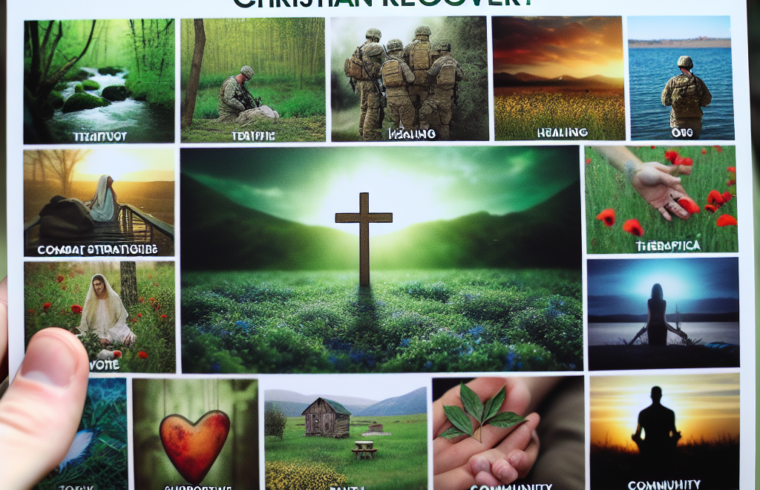==> Thank you for reading this post! Click Here If you are looking for support and Victory over PTSD.
Faith-Based Support Systems
Connecting with Fellow Believers
One of the most powerful things I’ve discovered on my journey with combat PTSD is the importance of connecting with others who share my faith. There’s something incredibly comforting about sitting in a room filled with people who understand both the struggles of PTSD and the healing power of faith. These connections can be made through church groups, support meetings, or even online forums. Sharing experiences with fellow believers can provide a unique perspective and, honestly, just makes the heavy burden feel a little lighter.
I’ve found that having someone to talk to when the nights get long and stormy is crucial. Whether it’s a pastor who gets it or just a friend who’s willing to lend an ear, those relationships can be lifelines. Prayer and fellowship in these spaces remind me that I’m not alone in this battle; there’s a whole community rooting for my recovery.
Moreover, engaging with these support systems can also lead to rich discussions about scripture and how it relates to our healing processes. Together, we can dive deep into messages of hope and restoration that come from our Christian faith, solidifying our belief that healing is possible.
Prayer and Meditation
The Power of Prayer
I can’t stress enough how powerful prayer has been on my healing journey. It’s like having a direct line to God, where I can express all my fears, my anger, and my hope. Sometimes, I start my day with a simple “Help me” and let God fill in the gaps as I go about my daily life. In moments of turmoil, lifting my prayers can bring instant peace; it’s remarkably calming.
What I’ve noticed is that prayer doesn’t have to be formal or fancy. It can be just me talking to God like I would talk to a friend. Sharing my struggles and asking for guidance feels cleansing and can shift my mindset. I’ve learned that God is in the details, cheering me on through every step.
Additionally, incorporating structured prayer times or journaling prayers helps me to stay consistent. Writing down what I’m feeling and then offering those thoughts up has been therapeutic. Often, looking back at those entries shows me just how far I’ve come, reinforcing the belief that God’s grace is real and present in my life.
Scripture Study
Diving into the Word
When I turn to scripture, it’s like finding treasure. The Bible is packed with verses that speak directly to the heart of trauma and recovery. Studying these words offers both comfort and a wealth of guidance—I’ve literally found passages that speak to my pain, providing reassurance that I’m not alone and that healing is indeed possible.
I’ve established a routine where I dedicate time daily to read and reflect on a few verses. For instance, verses that focus on peace and comfort, such as Philippians 4:6-7 and Psalm 34:18, resonate with me deeply. This reminds me to turn to God first when chaos swirls within.
Using devotionals and joining Bible study groups has also amplified this experience. The communal aspect of discussing scripture brings new insights and strengthens my faith. Having others share their interpretations allows me to view my circumstances through a different lens—one filled with hope and understanding.
Professional Counseling with a Christian Perspective
Choosing the Right Counselor
Finding a therapist has been pivotal in my journey to recovery. However, what made a massive difference was seeking someone who not only understood PTSD but also integrated Christian principles into their practice. It felt comforting to know that my struggles weren’t just analyzed clinically but were understood in the context of faith.
Get Support and Help with Recovery! Visit us for more Information and Support
During sessions, I appreciate how we can intertwine psychological strategies with biblical truths. This dual approach allows me to not only process my emotions but also hold on to my faith intimately. It’s like having a safe space to confront demons while also finding scripture to draw strength from.
I encourage you to research and find a counselor who resonates with your beliefs. Asking about their approach to dealing with trauma from a Christian perspective can provide clarity and assurance. Just as we wouldn’t go to a mechanic for a heart problem, the same applies to therapy. Get someone who can meet you where you are—spiritually and mentally.
Healthy Lifestyle Changes
Nourishing Body and Spirit
Let me tell you, I learned the hard way that what I put into my body impacts my mental health. Eating a balanced diet has dramatically improved my mood and energy levels. More greens, fewer takeouts! It sounds simple, but adopting these habits has worked wonders for my overall wellbeing. It’s almost like I’m feeding my body with the respect it deserves, and in return, it helps to support my healing process.
Moreover, regular exercise has become another crucial element of my recovery. Whether it’s hitting the gym, going for a run, or even yoga—these activities help to release pent-up energy, reducing anxiety levels. Additionally, it’s empowering to see how movement contributes to both physical and spiritual strength. I often find myself praying while I run, cementing a connection between body and spirit.
Also, I’ve learned the importance of sleep and rest. Balancing these lifestyle changes sometimes takes work, but incorporating rituals, like reading scripture or having quiet time before bed, makes it feel easier. Our bodies need care, and when we treat them well, we open pathways for emotional and spiritual growth as well.
FAQs about Combat PTSD Christian Recovery Options
What are some effective ways to find support for combat PTSD?
Connecting with local church groups, attending Christian support groups, or even reaching out to pastoral care at your place of worship can be an effective way to start. Also, consider online communities where believers share their experiences and support one another.
How can prayer specifically aid in recovery from PTSD?
Prayer acts as a direct line to God, offering an opportunity to express fears, hopes, and emotions. It provides comfort and a sense of belonging. By infusing prayer into daily life, one can experience moments of peace amid chaos.
Why is it beneficial to study scripture during recovery?
Diving into scripture brings comfort and insights while grappling with trauma. Verses related to healing, peace, and hope can be very powerful in providing reminders that recovery is not only possible but promised by God.
How do I choose a suitable therapist for my needs?
Look for licensed counselors who specifically mention integrating Christian principles in their practice. It’s wise to inquire about their methods and ensure that they align with your beliefs and comfort level during recovery.
What lifestyle changes can positively impact combat PTSD recovery?
Adopting healthy nutrition, regular physical activity, and ensuring sufficient sleep are crucial. Alongside these, creating spiritual rituals can significantly contribute to emotional and mental healing.













